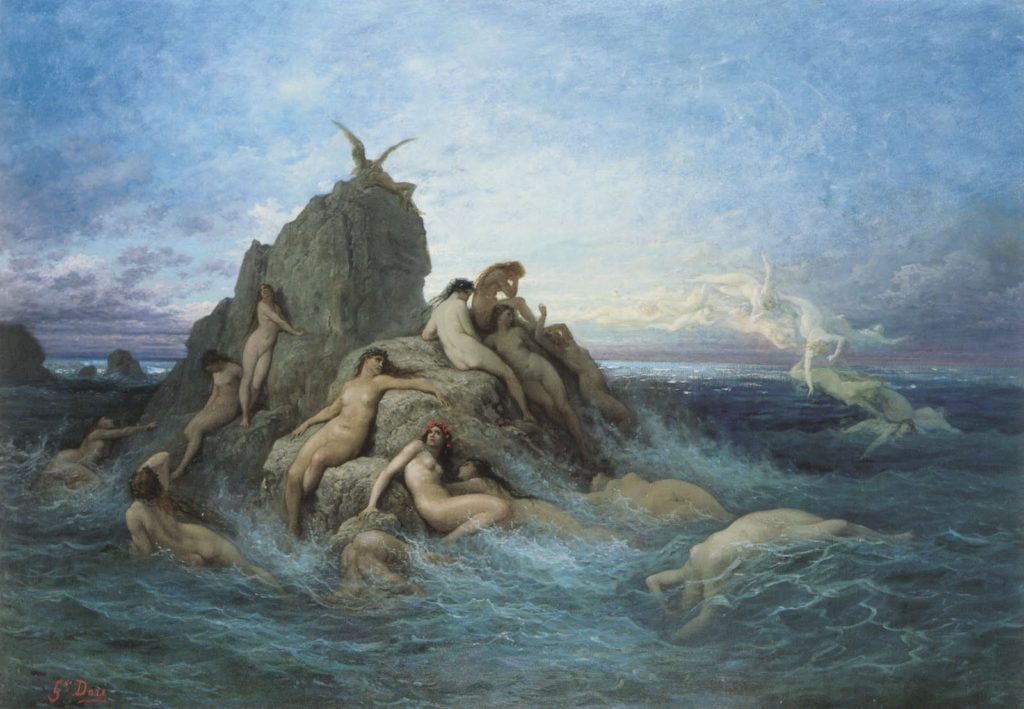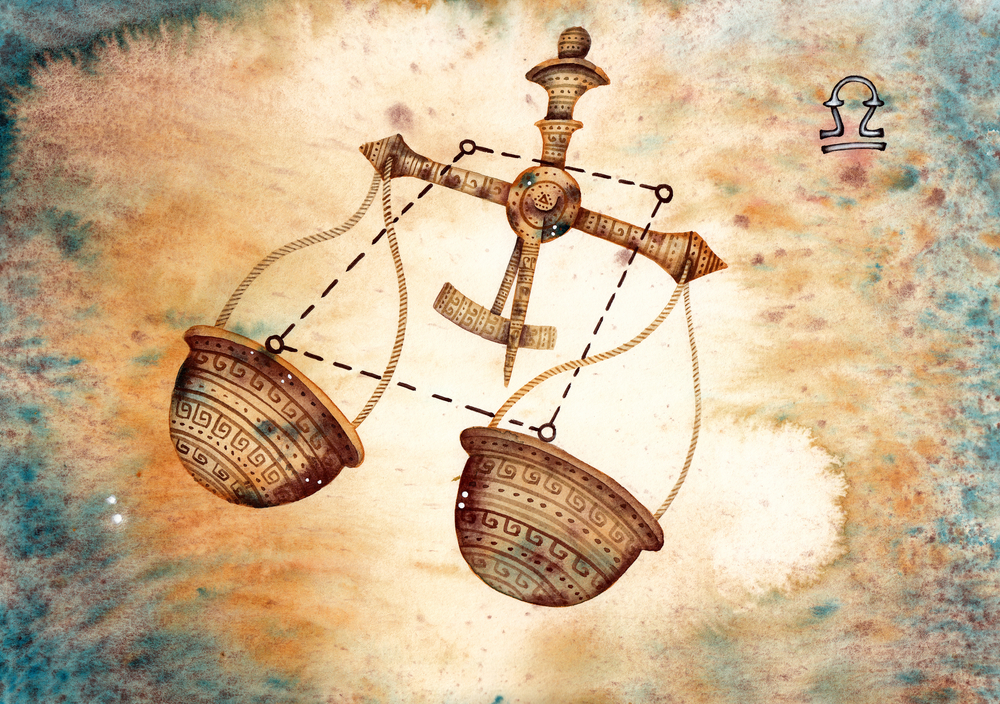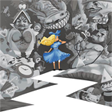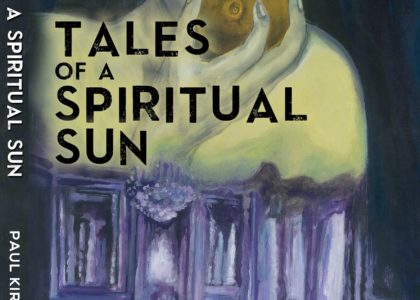
The name Prometheus has cultural associations to creation, theft, progress, evolution, intelligence, and fore-thinking. In fact, the etymological route of the name from the words pro (before) and manthano (learn) links the word in question to the latter and explains why the Latin Servius claimed that Prometheus was a man of great foresight. Like many of the other deities, it appears that Prometheus first appeared in Hesiod’s famed epic poem Theogony as a son of the Oceanid Clymene and the Titan Iapetus. He had three other siblings–Atlas, Menoetius, and Epimethius–none of whom acquired his fame or significance when it came to human striving, rebellion against established order, and perilous endeavours like deception which typically generate overwhelming consequences.
Prometheus makes his first appearance in the Theogony, though it isn’t until Works and Days (lines 42-105) that Hesiod expounds upon the consequences of Prometheus’s theft of fire from the gods. According to these early sources, the gods were pleased when they created humankind and wished to bestow the noblest of gifts upon them. To do this efficiently and effectively they sought the help of Prometheus and Epimetheus, a task that the two brothers aptly accepted. The gifts themselves included everything from strength, size, and swiftness, to mental dexterity, flight, and versatility. Being of an impulsive, enthusiastic and blasé disposition, Epimetheus overcompensated for the animal kingdom to the extent that when the time to imbue humankind with gifts finally came, there was nothing left. Prometheus was immensely horrified when he discovered his brother’s overt generosity. He spent much time thinking about how this detriment to humankind could best be corrected.
Finally, he agreed that the best course of action would be to steal the element of fire from the gods and give it to humans who could then use it for multiple purposes–keeping warm, cooking food, defence against dangerous predators, and so forth. From a humanistic perspective, the act was noble, heroic and dignified for it put humankind on the highway of scientific progress, cultural evolution, and the acquisition of knowledge. In many ways Prometheus was the progenitor of the arts and sciences. His punishment for this divine transgression was to be chained to a rock on pinnacle of the Caucasus. There, a hungry eagle would descend from the skies and tear his liver out with its sharp talons before devouring it. Prometheus’s immortality offered the winged beast innumerable free lunches and dinners; the liver regenerated overnight, so the eagle would return time and time again until Heracles finally liberated Prometheus thirty years afterwards with the consent of the omniscient Zeus.
Hesiod also introduces Prometheus as the ultimate trickster. In the Theogony he deceives the father of the gods by presenting him with two sacrificial meals and asking him to pock between the two. One contained a selection of lean meat inside an ox’s stomach and the other a blend of fat and bones wrapped in glistening fat. Deliberately misled by the autosuggestion made by outward appearances, Zeus selected the package that was nutritionally poorer. The myth serves as a prototype delineating why the ancients offered up only the fat and bones of an animal sacrifice and kept the rest for themselves. If there was one thing that the Olympians despised, it was being duped by other beings judged to be intellectually and physically inferior.
Zeus sought retribution for Prometheus’s act but he did it in a much more discreet and subtle matter. He invited the lame blacksmith Hephaestus to fashion the external form of the first woman from clay and the Olympian goddesses to dress her with their finest aesthetic qualities. This first woman was an amalgamation of seductive gifts conferred by the gods themselves, and so she was given the name Pandora, meaning “All Gifts”. Once the physical vessel was ready, it was ensouled by the four winds blowing forcefully from their allotted corners. Her soul was then instilled with wickedness by Hermes on the command of Zeus. The inversion of an originally good nature was what possessed Pandora to open a pithos (jar) containing lamentable ills, pains, and diseases that had been entrusted to her by the Olympians, thus imposing calamity on the human condition. Pandora rushed to replace the lid and prevent other evils from escaping but it was too late. In the end, the only thing that remained trapped inside was Elpis, or Hope.
Myths are carriers of spiritual truths, racial idiosyncrasies, and the nature of reality as each culture perceive it so there are numerous ways in which we could interpret the Promethean insurrection against the twelve Olympians. Personally, I possess a strong bias towards inwardly-turned interpretations that explain mythical narratives in terms of the inner workings of the psychic realm. In this light the Promethean endeavour becomes an internal battle or war between positive and negatively-charged forces of the soul. At this point it would be impossible to continue without introducing concepts pertaining to the analytical psychology of Carl Gustav Jung (1875-1961).
Jung developed a stream of esoteric spirituality whereby projections of reality onto external matter were understood to be by-products of the intercourse between two vital components of the human psyche termed the conscious and unconscious. To make the terms accessible to an untutored audience, we might define the conscious as one’s personal sphere of awareness of the cosmos in which we live and the unconscious as every universal form, idea, image, concept, symbol, pattern or archetype, if you like, that exists in the psychic world but has not yet come to light. If we were to equate the two concepts with something more tangible, the conscious would be a sun or star and the unconscious, or collective unconscious if we were talking about humanity as a whole, would be the infinite and expanding universe. During its lifetime, the light of consciousness can travel and illuminate contents in the darkness of the unconscious, hence causing one’s ego to inflate and become conscious of a greater reality, but it can never encompass the sphere of the unconscious for the obvious reason that the latter is illimitable.
Just as light and dark are inexplicable connected to one another as active and passive participants in a duality through which all reality is perceived, so too do the conscious and unconscious faculties of the psyche interact in such a way that resembles the eternal battle between water and fire on the surface of the earth. We might think of subterranean lava as an unconscious projection that erupts through the ocean of consciousness to create a little island, the ego’s cosmogony, bringing hitherto unknown archetypes and thoughtforms to the forefront. This phenomenon is linked to the process of self-actualization that Jung called individuation, a transformation of the individual personality where unconscious elements are eventually integrated with the personal psyche to create a psychic body distinct from the collective, but it is also a necessary evil and chaos that strengthens willpower and disassociates personal consciousness from its roots in the collective unconscious. When consciousness grows, it inflates like a helium balloon, rising higher and higher into the supernal skies and acquiring greater and greater freedom from base instincts, reactions, and impulses that weigh down and obstruct the primal ego. A natural consequence of this condition is that the ego-consciousness is severed from psychological archetypes whose pedigree belongs to the variegated constellations of the collective unconscious.
In retrospect, the sweeping ambition of the conscious is independence from a maternal unconscious on which it is dependent though in seeking a level of freedom that transcends its own frontiers it is in effect committing hubris against the unconscious psychic source from whence it takes its own nourishment. This can result in an inner turmoil that leads to pandemonium within ego-consciousness and eventually to its dissolution and death if the latter remains in a state of suspended animation without forging new archetypal configurations with the collective unconscious. The source of consciousness is the unconscious and the ego cannot perceive the world of matter without an archetypal framework in as much as an astronomer cannot see the icy rings of Saturn without the aid of a telescope. Thus the fragmentation and reintegration of these two components of the psyche is a salvific act that liberates the individual personality from its carnal routes as well as a transgression against the psychological archetypes personified as gods on which it was dependent during the rudimentary phase of its development.
If we chose to interpret the Promethean myth from a Jungian perspective, it should be blatantly obvious that Zeus’s vengeful act in chaining Prometheus to a rock of the Caucasus is an afflicted ego’s inability to reconnect with its unconscious origins, albeit in a new and meaningful form, after its temporary division from the collective unconscious. Proceeding from this psychological reasoning, Prometheus could also symbolize a fragmentation of the personality or a neurosis about to flower into a full-blown schizoid disorder or psychosis. His transgression against the Olympians would then become a situation of inflation in which ego-consciousness experiences a fierce sense of autonomy, power, and independence, and the diurnal passions that he suffers as a consequence of his imprisonment afterwards become the nervousness, confusion, disorientation, and entanglement in the realm of matter, and mental poison generated when one wallows in an extreme conscious standpoint for too long after it has been estranged from the unconscious. As a more complete and comprehensive entity, the unconscious possesses formative powers and can either destroy the ego-consciousness or contribute to its regeneration and renewal as a new form by integrating new projections into its cosmogony after it has been swallow up. Prometheus was eventually saved from his torture by Heracles, meaning that the psychic friction of the estranged ego finally experienced reintegration with the unconscious, contributing to a widening of the conscious standpoint and consequently the generation of a newer and more sophisticated, in addition to a more permanent personality.
From Myth and Knowing: An Introduction to World Mythology by Scott Leonard and Michael McClure. Copyright 2004 by The McGraw-Hill Companies, Inc. pp. 304-307.
Prometheus, from Hesiod’s Theogony (507-681)
Iapetos [a child of Gaia and Ourano] married one of Ocean’s daughter’s,
Klymene with her beautiful ankles,
and took her to their bed.
She gave birth to Atlas for him,
a child with strong will,
and then Menoitios with all his fame,
and Prometheus with his many tricky plans,
and Epimetheus who could never get it right
and was from the start something bad for men,
who live by eating bread,
as he was first to get from Zeus, once she was made,
a woman to marry.
But Zeus bound Prometheus and his many intentions
with painful chains no one could break,
strapping him hard with these to a pole.
And Zeus sent an eagle with beautiful wings
to attack him and eat his immortal liver.
Yet everything this bird with beautiful wings
Would eat during the day would grow back at night.
For the gods and mortal men had had an argument at Mekone.
At that time Prometheus, knowing just when he was doing,
deceiving Zeus, cut up and offered a great ox.
He first set out the ox’s flesh and innards with tasty fat,
hidden in the ox’s stomach.
He then set out the ox’s white bones, neatly and with skilled deceit
hidden in the glistening fat.
The father of both men and gods addressed him:
“Iapetos’ son, most famous of all the lords,
my friend, you’ve laid these portions our unfairly.”
This is what Zeus said sneering; Zeus with his plans that can’t be changed.
And Prometheus with his crafty plans addressed Zeus’
“Zeus, greatest and mightiest of all the everlasting gods,
choose whichever of these you’d like.”
He said this thinking he was being clever.
But Zeus with his plans that can’t be changed
was fully aware of this deceit
and thought up evils for mortal men
intending to see them through.
Nonetheless, with both hands he chose the white fat.
And when he saw the white bones of the ox,
laid out with skilled deceit,
his temper rose in anger.
This is why the race of men on earth
burn white bones on smoking altars.
Greatly disappointed, Zeus who gathers clouds together, addressed him:
“Iapetos’ son, you who know what the plans are for everything,
my friend, you certainly haven’t forgotten how to deceive with skill.”
That is what Zeus said seething; Zeus with his plans that can’t be changed.
Because Zeus never forgot this trick, he stopped giving the ash trees
the power of unresting fire to mortals who live on earth.
But the good son of Iapetos tricked him
by stealing unresting fire, bright and clear from a distance,
in a hollow fennel stalk.
This hurt Zeus deeply in his soul; Zeus whose thunder
is heard from the heavens; and he seethed in his heart,
seeing fire among men, bright and clear from a distance.
For the theft of fire he immediately made
something evil for men:
The famous lame-legged Hephaistos,
through the intentions of Kronos’ son [Zeus]
made something very much like
a modest young woman.
And the gray-eyed goddess Athena
dressed her in silvery-white clothes,
arranged her hair, and applied makeup.
And she put on her head a beautiful veil
–it was amazing to see–
and then a crown of flowers that had just bloomed.
When Hephaistos had finished this beautiful thing,
something evil instead of something good,
he brought her out where the other gods and men were.
Her appearance was delightful, thanks to Athena
The gray-eyed daughter of great Zeus.
The immortal gods and men were amazed
when they saw this perfect trick, this thing
that would leave men at a loss.
So from her come the female sex–
women who live with mortal men
and cause them pain–
no good at being damn poor
but quite suited to getting more than enough.
And this is how Zeus whose thunder is heard in the heavens
made for mortal men an evil, women,
a sex synonymous with trouble and pain.
So it isn’t possible to trick the mind of Zeus
nor get around it in some way
as even Prometheus, the son of Iapetos, with good meaning,
didn’t evade his deep anger, but necessity bound him,
despite his wisdom, with great chains.









